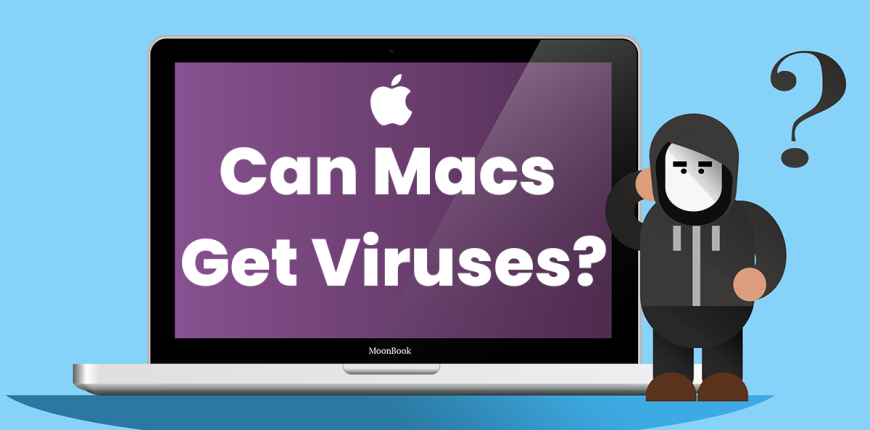It’s a common misconception that Macintosh computers can’t get viruses. Even Apple sponsors advertisements claiming that their laptops “don’t get viruses.” And those who have had a Mac for a long time, even decades, are more prone to believing that sentiment. After all, if nothing has happened to them, why wouldn’t they? Unfortunately, to answer the question, “can Macs get viruses?,” the answer is yes. Macs can get viruses and the threat for them is growing rapidly.
This misconception comes from the fact that hackers were not bothering to develop Mac viruses. At one point there were not enough users to make the effort of doing so worthwhile. Instead, these cybercriminals would focus on Windows running PC’s, because they were easier targets.
It’s clear now that the same stigma cannot apply. Apple’s market share is ever growing and Macs are becoming more relevant in the office, especially in creative sectors. Additionally, Mac users are thought to be good targets because they are probably more wealthy than the average Windows PC user. So, even though Macs are still harder to infect, the rewards for infecting them offer a greater payout.
Identifying Apple’s Vulnerabilities
It’s obvious bad actors have caught on and are no longer deterring from Apple. They are actively searching for vulnerabilities in Macs.
A typical strategy for doing so is with Trojans. Trojans are names after the wooden horse that was given as a gift and concealed an army. Therefore, Mac users gladly input their credentials to download an application that ends up letting a hacker in.
An example of this occurred in 2011, when a Trojan dubbed “Mac Defender” profited off people’s need to secure their computers. The phony software gave the impression of being an antivirus software. After users installed it, a flood of pop-up ads encouraging the purchase of more phony software came about.
Trojan software is able to enter your computer when you have your guard down. The use of messaging is trying to inflict emotion. Something like a note from a long lost friend or an unflattering picture of a celebrity to get you to give the ok. The only thing that will stop these types of attacks is the sense of suspicion when downloading or installing anything into your computer.
Business owners should consider training their employees on the importance of:
- carefully checking emails
- making sure to verify file attachments and links before clicking on them
- checking a website for a legitimate URL
- questioning “too-good-to-be-true” offers
Mac security expert Thomas Reed claims that there is a new danger that originates from the Mac App Store. An app for the Mac OS called Gatekeeper can check a file’s code signature when a user attempts to install an app. The signature confirms the app’s legitimacy. Reed discovered that hackers could either purchase a valid certificate from Apple or steal one to deceive users. Users would instead install malware that could attack trusted apps while avoiding detection.
Overall Takeaways
Apple works diligently to ensure users are safe from malware. The question “Can Macs get viruses?” continues to be a misconception because of how many safety measures are put in place. However, it’s important to remember that Macs are still capable of getting viruses.
Find out what you can do to safeguard your Mac today against malicious threats. Partner with a managed service provider in Los Angeles today to put your security in the right hands.
Check out our recent blog on everything you need to know before traveling with tech.
Call us at (323) 761-2634. We’d be happy to assist you and all your technology needs.
We are located in West Hollywood, servicing the greater Los Angeles area!

